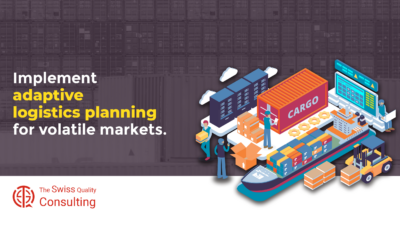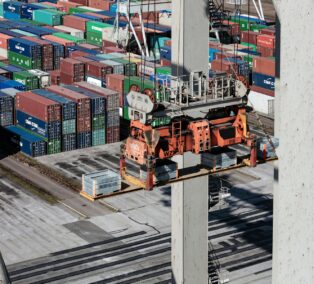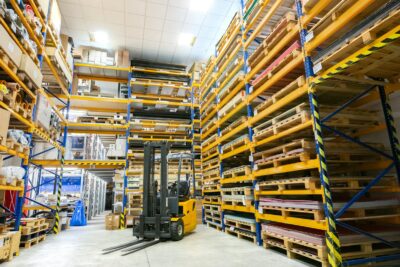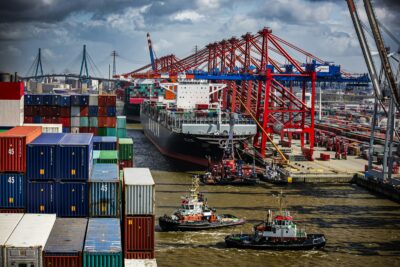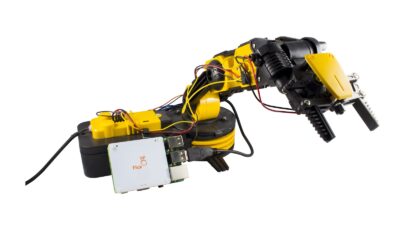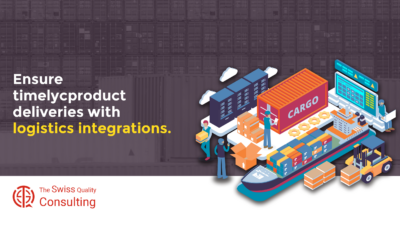Advancing Warehouse Efficiency with Smart Robotic Solutions
Introduction
In the realm of logistics and supply chain management, leveraging intelligent robotics in warehouse operations has emerged as a game-changing strategy. This article aims to provide business executives, mid-level managers, and entrepreneurs with an in-depth understanding of how intelligent robotics can revolutionize warehouse operations, leading to increased efficiency and business success.
The Evolution of Warehouse Operations with Robotics
The integration of intelligent robotics into warehouse operations has ushered in a transformative era, revolutionizing the way businesses approach logistics and inventory management. These sophisticated machines, imbued with artificial intelligence and automation capabilities, have transcended the realm of mere material handling to become indispensable partners in the pursuit of operational excellence. By seamlessly integrating into existing workflows, intelligent robots offer unparalleled precision, speed, consistency, and scalability, fundamentally altering the landscape of warehouse operations.
At the heart of this robotic revolution lies the ability to automate repetitive, labor-intensive tasks that were once the mainstay of warehouse operations. From picking and packing orders to transporting goods across vast warehouse floors, intelligent robots tirelessly execute these tasks with unwavering precision and speed, minimizing human error and maximizing productivity. This automation not only reduces labor costs but also enhances safety, minimizing the risk of workplace accidents and injuries associated with manual handling tasks.
Beyond mere task automation, intelligent robots bring a new level of sophistication and adaptability to warehouse operations. Equipped with advanced sensors, cameras, and artificial intelligence algorithms, these machines can navigate complex environments, make autonomous decisions, and adapt to changing conditions. They can identify and retrieve specific items from vast stockpiles, seamlessly navigate through aisles and around obstacles, and even optimize their movements to minimize energy consumption.
The benefits of integrating intelligent robotics into warehouse operations are manifold, encompassing:
Enhanced Efficiency and Productivity: Robotic automation dramatically increases efficiency, reducing order fulfillment times, minimizing errors, and maximizing throughput. This translates into significant cost savings, improved customer satisfaction, and a competitive edge in the marketplace.
Labor Optimization and Cost Reduction: By automating labor-intensive tasks, intelligent robots reduce reliance on manual labor, minimizing labor costs and enabling businesses to reallocate human resources to more strategic and value-added activities.
Safety and Risk Mitigation: Robots eliminate the risk of workplace accidents and injuries associated with manual handling tasks, creating a safer and more secure working environment.
Inventory Management and Optimization: Intelligent robots facilitate precise inventory tracking and management, ensuring real-time visibility into stock levels, preventing stockouts, and optimizing inventory replenishment strategies.
Scalability and Adaptability: Robotic systems can be seamlessly scaled to meet changing demands, adapting to fluctuations in order volume, product mix, and warehouse layout, ensuring business continuity and adaptability.
In essence, the integration of intelligent robotics into warehouse operations is not merely a technological upgrade; it is a strategic imperative for businesses seeking to optimize their logistics, enhance efficiency, and achieve sustainable growth in today’s dynamic and competitive marketplace. By embracing robotic automation, businesses can transform their warehouses into hubs of innovation, productivity, and safety, positioning themselves for long-term success in the ever-evolving world of logistics and supply chain management.
Enhancing Productivity and Reducing Errors
Intelligent robotics in warehouse operations not only speeds up processes but also significantly reduces the margin of error, ensuring higher accuracy in tasks such as sorting, packing, and inventory management.
Role in Change Management
Adopting intelligent robotics in warehouse operations is a critical component of change management in modern businesses. This transition involves rethinking and redesigning operational workflows to integrate and maximize the benefits of robotic technology.
Navigating Technological Transformation
Effective change management strategies are essential to successfully integrate intelligent robotics into warehouse operations, ensuring a smooth transition and minimal disruption.
Impact on Executive Coaching and Leadership
Effective leadership is vital for implementing intelligent robotics in warehouse operations. Executive coaching programs are increasingly focusing on training leaders to manage technological transformations and drive innovation in logistics.
Leading with a Vision for Technological Advancement
Executive coaching equips leaders with the necessary skills to embrace and lead the integration of robotic technologies in warehouse operations, fostering an environment of innovation and efficiency.
Effective Communication in Technological Integration
Clear communication is crucial in the implementation of intelligent robotics in warehouse operations. It involves articulating the benefits and changes brought by robotic technologies to all stakeholders.
Building Team Adaptability and Tech-Savviness
Effective communication about the integration of robotics is essential for building a workforce that is adaptable, tech-savvy, and ready to embrace new operational methods.
Generative AI in Enhancing Robotic Efficiency
Generative Artificial Intelligence (AI) significantly enhances the capabilities of intelligent robotics in warehouse operations. AI-driven robots can learn, adapt, and optimize their functions based on real-time data, leading to continuous improvement in operations.
Leveraging AI for Smarter Warehouse Robotics
Generative AI brings a new level of intelligence to warehouse robotics, enabling them to perform complex tasks with greater autonomy and efficiency.
Conclusion Leveraging Intelligent Robotics in Warehouse Operations
In conclusion, leveraging intelligent robotics in warehouse operations is an essential strategy for businesses looking to enhance efficiency, accuracy, and speed in their logistics and supply chain management. The integration of AI and robotics represents the future of warehouse operations, offering significant benefits and competitive advantages to forward-thinking businesses.
#WarehouseRobotics, #SupplyChainInnovation, #AIinLogistics, #OperationalEfficiency, #RoboticsTechnology










